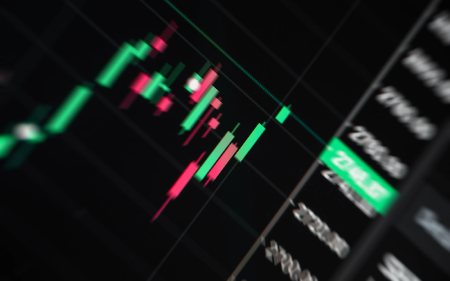Forex market hours: You need to know this so you don't miss out on profits

Visitors: 722
The foreign exchange market is open for trading 24 hours a day, five days a week. This decentralized network of banks, exchanges, brokers and financial institutions is the largest and most liquid trading market in the world. Understanding when the Forex market opens is very important for successful trading. This is because exchange rates are affected by the opening hours of local financial markets, and important news and economic events often occur during business hours.
CFDs are complex instruments and carry a high risk of losing money quickly due to leverage: between 74 and 89% of retail investor accounts lose money when trading CFDs. You should consider whether you understand how CFDs work and whether you can afford the high risk of loss.
Official opening hours of the Forex market
The Forex market is usually open from 5:00 pm Sunday to 5:00 pm Friday. These hours can depend on a number of factors including the broker you use, Daylight Saving Time (DST), trading holidays and the specific currency pairs you trade.
The best time to trade Forex depends largely on the specific currency pairs your trading strategy is focused on. It is important to know which currencies are predominantly active at a given time of day in order to trade at the preferred hours that match your physical location and time zone.
For all currency pairs, the market may be more active during certain trading hours and less active during others, often during the hours that are most relevant to the currency in question. For example, trading hours in Sydney may see increased volatility or price movement on AUD and NZD related currency pairs, while trading hours in Tokyo may see increased activity on JPY and SGD related currency pairs.
Trading session highlights
Regardless of where you are in the world, it is important to know what trading sessions are taking place on Forex at the time you want to trade and which currencies may be more active at that time. It is not enough to simply memorize Forex trading hours, you must also familiarize yourself with Forex trading sessions and how they can affect the dynamics of the Forex market. There are four universally recognized Forex trading sessions:
- Sydney Forex session - often traded with local Asia-Pacific currency pairs (AUD, NZD).
- Tokyo Forex session - often traded with other Asia-Pacific currencies (JPY, SGD, CNH).
- London Forex session - London is the largest financial center in terms of trading volume in the Forex market (especially EUR, GBP, CHF), so there is usually increased activity in all currency pairs.
- New York Forex session - The US Dollar is the most traded currency, so currency pairs around the world are often affected by local economic events.
While trading volume for a currency pair is usually correlated to the local trading session, this is not a hard and fast rule as trading volume can increase for a variety of reasons unrelated to local trading hours, such as global events.
The beginning of the week
Most people consider the beginning of the week to be the Sydney session. While the Sydney session starts at 7am AEST on Monday (3pm AEST on Sunday), the Tokyo session starts a few hours later at 9am AEST (7pm Japan time) and the London session starts at 8am AEST (3am UK time). Finally, the New York session starts at 8am AEST on Mondays.
Many brokers open after 5pm AEST, more than two hours before the beginning of the Sydney session. The cycle then repeats until the market closes at 4 p.m. on Friday (some brokers extend this time to 5 p.m., but pending trades are not carried over to the weekend and interest accrues for both deadlines).
The Sydney and Tokyo sessions are the longest at 6-7 hours, followed by the London and New York sessions at 4 hours, and all four sessions overlap, especially the London and New York sessions, which overlap during business hours due to the high trading volume of the world's most traded currencies, the dollars and the euro.
What time does the Forex market open
The Forex market opens every Sunday at 17:00 EST or 22:00 GMT for most Forex brokers. In New Zealand, the Forex market trading week begins on Monday morning (around 9:00 local time) when banks and financial institutions open for business. This is the commonly known opening time for Forex trading in Sydney (7am Sydney local time). It is important to note that the Forex market is decentralized and some dealers may open for trading earlier, before most major institutions open. For example, the Australian Currency Board states that you can begin trading as early as 5am Sydney time (usually 1pm or 3pm). Check with your broker for the exact beginning time of trading.
Examples of market openings:
- 11:00 NZDT: Wellington, New Zealand UTC +13;
- 9:00 AEDT: Sydney, Australia, UTC +11;
- 7:00 JST: Tokyo, Japan, UTC +9;
- 6:00 SGT: Singapore, UTC+8;
- 11:00 CET: Frankfurt, (DE) EU, UTC +1;
- 10:00 GMT: London, UK, UTC +0;
- 17:00 EST: New York, USA, UTC -5.
These times are affected by various Daylight Saving Time (DST) changes throughout the year. For example, places below the equator, such as Sydney, often change to Daylight Saving Time, while places above the equator, such as New York City, do not, and vice versa. Always carefully check the time zone translation for a particular date, and see the Daylight Saving Time section below for more information.
FQA
What time does the Forex market close?
The Forex market usually closes at 17:00 EST (21:00 GMT) at the end of the New York trading session every Friday. The weekly closing time is particularly important because trades made after the market closes are not carried over to the next day until the market opens after the weekend, which entails interest accruing on both days and risking gaps if important events occur during the market close.
The trading day typically begins before 5:00 p.m. Eastern Time. Some brokers may offer trading until 5:00 pm, but there is a lull in the market before then as the world gradually closes for the weekend (some brokers close as early as 4:30 pm).
Is the Forex market closed on holidays?
Yes, the entire Forex market is closed on certain international holidays, while local financial markets (e.g. national markets) may be closed on certain national holidays. For example, most markets around the world are closed on Christmas and New Year's Day, and national holidays usually only affect the local markets in that country, and the country's currency is also closed. A public holiday in one country does not freeze the rates of other currency pairs, and trading will continue on the respective currency pairs tied to that currency.
Does Daylight Saving Time (DST) affect Forex trading hours?
Yes, Daylight Saving Time (DST) affects Forex trading hours as many countries have daylight saving time (or may not have daylight saving time at all). This can affect the availability of financial instruments and trading hours depending on where you live or where your broker is located, so it is very helpful to know what time zone your broker uses to customize their products.
Currently, the United States and other countries in the Americas above the equator switch to Daylight Saving Time (known as DST in Europe) on the second Sunday in March, and the United Kingdom switches to Daylight Saving Time on the last Sunday in March. Many countries in the Asia-Pacific region, including parts of Australia, do not observe daylight saving time at all. Countries below the equator, including South America, South Africa, New Zealand, and parts of Australia (including Sydney) observe daylight saving time in winter rather than summer.
We have compiled for you a list of unscrupulous brokers, , with reviews on which you can find on our website.


Comments 0